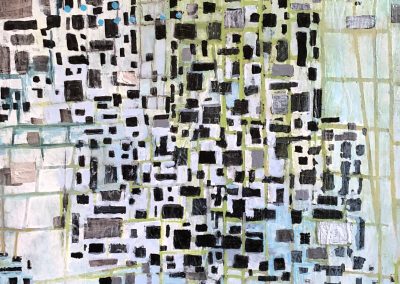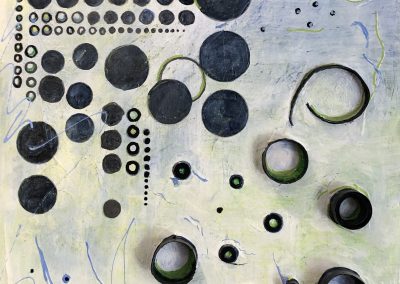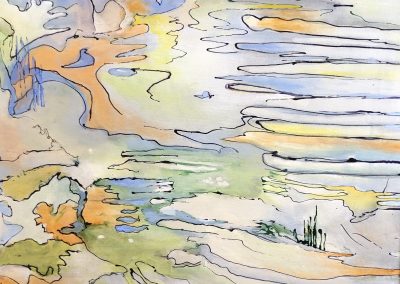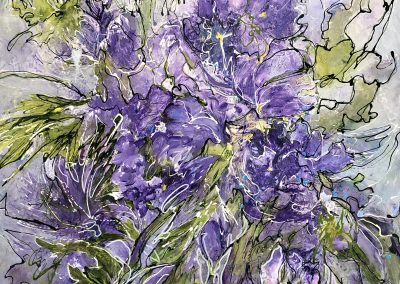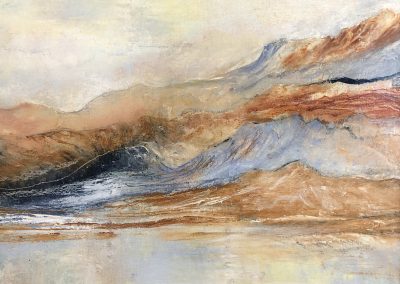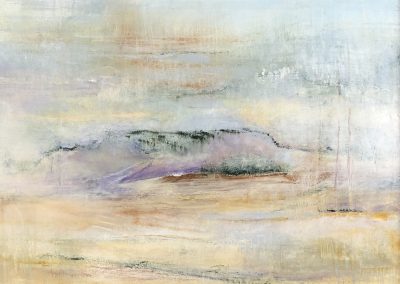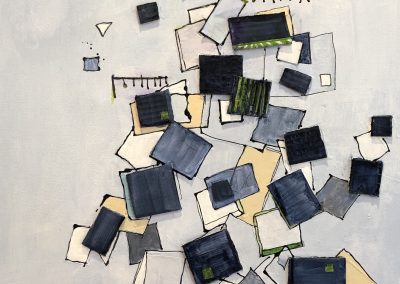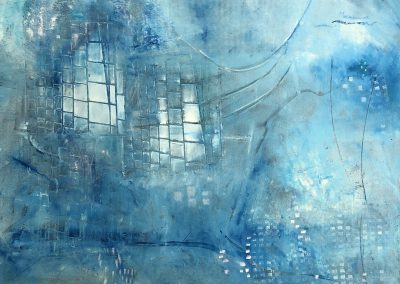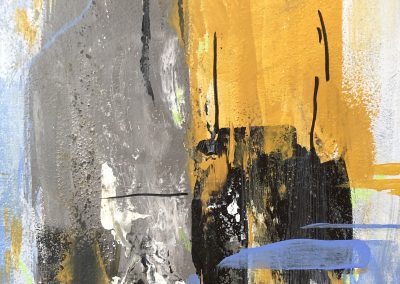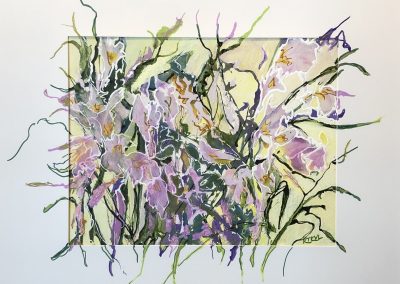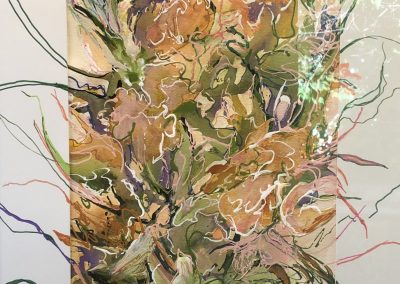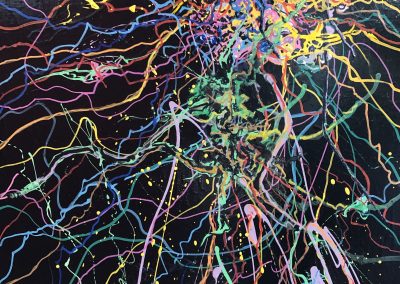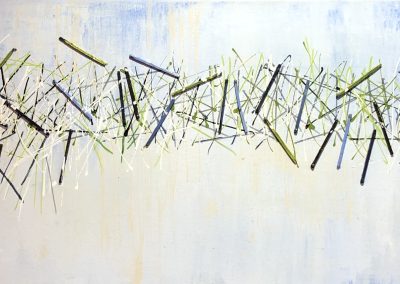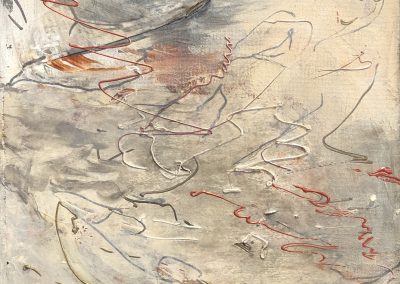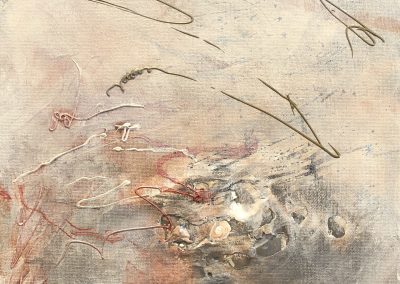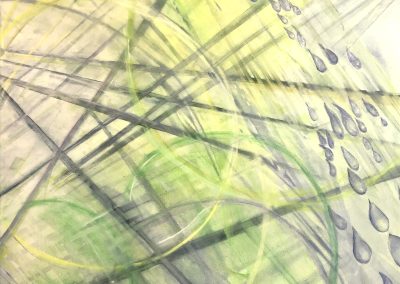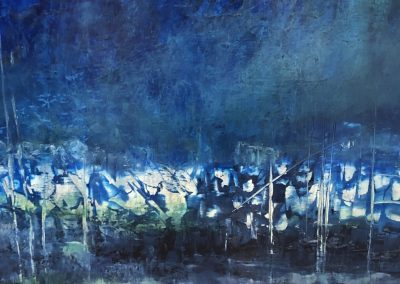Transitions | Artwork by Kathleen Van Lieu

Van Lieu’s solo show features her work in three distinct styles and subjects, each representing a Transition in her artistic journey. The exhibit will be on display at MoonRise Gallery through November 30.
Artist Statement
“Abstract paintings have been my favorite type of art ever since I was 7 and first encountered it at a sidewalk sale. I’ve been aiming toward it ever since, first learning to draw and paint realistically using classic mediums and techniques. In recent years, I found that Acrylics allow terrific scope for experimentation.
My subject matter ranges from abstract landscape and flora to non-objective work. All these subjects have been most interesting to me since I could pick up a crayon. Over time, I’ve done more of one and less of another, but they are all important as subjects representing my experience of our universe. Ideas expressed in any of my paintings contain some element relevant to the planetary stew of which we are all currently a part.”
Artist Talks on YouTube
MoonRise Gallery artist talks from current and past shows can be found HERE


